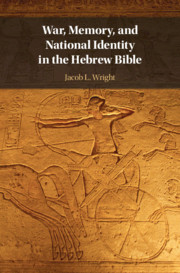Studies of the Rahab story in Joshua illustrate how, as interpreters, we can read our interests and convictions into a text, allow it no room to protest that it did not have these interests or convictions, and give it no opportunity conversely to question the interests and convictions that we bring to it as interpreters. This raises the question whether we actually want to discover things from texts or whether we simply want to provide illustrations of and support for what we think already.
